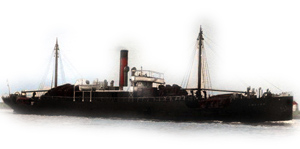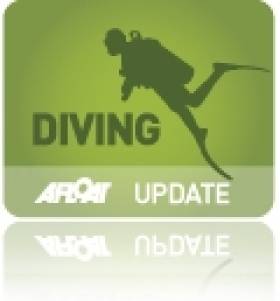Displaying items by tag: Blackwater Sub Aqua Club
Historic Lecture on the Easter Rising Vessel, The Aud
Embedded in the history of Ireland, the events which occurred in April 1916 place Roger Casement and his famous gun running ship in the annals of Irish history. She lies broken, in a depth 34 metres in Cork Harbour. Much of the cargo of 20,000 guns and 1,000,000 rounds ammunitions still remain writes Timmy Carey. The ship was scuttled by her captain Karl Spindler rather than hand the cargo to the British. This would be the only German naval surface ship to enter Irish waters during World War 1. The wreck was depth charged on a number of occasions to make sure that the weapons were scattered and made unrecoverable by rebel forces and to prevent submarines using the wreck as cover. The rifles and much of the ammunition originated in Russia. They were captured as a result of the rout of Russian forces at the battle of Tannenburg in 1914.
This coming Friday night Blackwater Sub Aqua Club in Fermoy will host a lecture on the Aud by author Xander Clayton. Xander is a researcher of Modern Irish history and is the leading authority on the Casement Ship. He has made a detailed study of the ship and her 22 man crew over the past quarter century, culminating with the publication of the book "AUD" in 2007. He now lives in Ireland and the second edition of his book is due for imminent publication. The lecture will start at 20:00 and is free of charge. The venue is Blackwater Sub Aqua Clubhouse, Rathealy Road, Fermoy. For further information contact Matthew Culotty 087-8217069.

Xander Clayton author of the book "Aud"

An image of the Aud ship before she was scuttled at the entrance to Cork harbour where she lies today

Karl Spindler the German captain of the Aud
























































